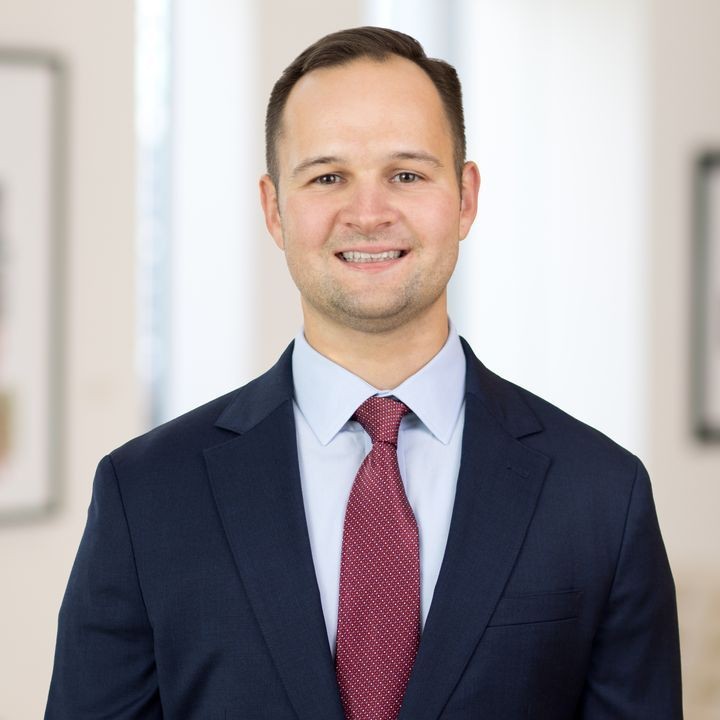Top 3 Auto Industry IP Trends for 2023
What You Need to Know
Key takeaway #1
Standard-essential activity is on the rise as 5G and other technologies are adopted for autos—forward-looking strategies can help
Key takeaway #2
Knockoff auto parts are surging as we emerge from COVID—design patents and the U.S. International Trade Commission can help
Key takeaway #3
The patent-friendly Western District of Texas returns as the go-to venue in 2023—aggressive defense can help, including transfers
Client Alert | 4 min read | 02.09.23, 12:03 PM EST
We are seeing three 2023 trends emerge as we start the year with our auto industry clients:
First, 2023 continues an upward trend in the assertion and litigation of standard-essential patents (SEPs) in the automotive space as the latest wireless communications technologies, including 5G cellular and Bluetooth 4.X and 5.X, are increasingly incorporated into new vehicle infotainment systems and other onboard computers. Both vehicle manufacturers and their suppliers should be concerned.
The ever-increasing importance of these technologies has led to a rise in the rate of patent applications on features essential to market-demanded technology, as compared to prior technologies such as 3G and 4G cellular and Bluetooth 2.X. As a result, a growing number of patent infringement lawsuits are being filed based on newly-issued patents, particularly as non-practicing entities (NPEs) accumulate patent inventories, just as they did with 3G, and 4G SEPs. For example, patent licensing entity Avanci has used its large pool of 2G, 3G, and 4G patents to seal deals with significant Asian, European, and U.S. auto- and part-makers.
Now is the time to work with outside counsel experienced in SEP portfolios, licensing and litigation, to identify proactive steps to ensure your company can immediately and aggressively respond when a demand is received. Based on our experience, a lightning-fast response is effective at minimizing litigation costs by driving early dismissal or settlement.
Looking forward: while current standards have been or are near being finalized, counsel at both OEMs and their suppliers should reach out to their engineering teams to educate them about the impacts of SEPs on the company’s business and encourage the teams to be active in next generation standard-setting organizations to protect interests at the embryonic stage of next generation standards. Collective action can also help: The Fair Standards Alliance now counts major auto industry players as members in its quest to promote SEP licensing on fair, reasonable and non-discriminatory (FRAND) terms.
Second, import data shows knockoff auto part imports into the U.S. are surging, due to COVID’s disruption of traditional distribution channels, and China significantly relaxing its COVID pandemic response at the end of 2022 to stimulate economic activity, coinciding with industrial production already recovering elsewhere in the Asia-Pacific region.
Unfortunately accompanying the growth in legitimate industrial production as workers return to their factories, will be a rash of unabashed automotive parts counterfeiters ramping production as well. To protect a company’s profitable ancillary businesses, such as replacement parts programs, and its intellectual property rights in its valuable trademarks, counsel will need to be vigilant in industry monitoring to identify unauthorized goods, and be prepared to act quickly to shut down infringers.
Design patents offer an expedient, cost-effective means to protect replacement parts, and the U.S. International Trade Commission (ITC) can cut imports off at the chokepoint of U.S. ports. One OEM recently notched an initial determination that large swaths of replacement automotive lamp imports infringed over two dozen design patents. Crowell & Moring has a deep bench of attorneys with the design patent and trade proceeding experience needed to halt knockoffs at the ITC.
Third, despite the Federal Circuit’s grant of several mandamus petitions moving patent infringement cases out of the Western District of Texas (WDTX), as well as that District’s change in how judges are assigned cases (June 25, 2022, Order requiring cases filed in Waco to be randomly assigned to all judges), the number of patent infringement lawsuits filed in this venue in 2023 can still be expected to be as high or higher than previous years, particularly by non-practicing entities (NPEs). Two primary factors are at issue:
In recent months, NPEs and other patentees have seen a decline in the Federal Circuit’s grant rate of Western District transfer mandamus petitions, emboldening them to continue filing in the District. Moreover, docket records show Judge Albright ended 2022 as the U.S. District Court judge with the biggest share of patent cases despite WDTX’s mid-year change in how judges are assigned patent cases. We expect NPEs will thus continue to seek the benefits of Judge Albright’s aggressive approach to managing patent cases.
In view of the continued likelihood of having to deal with an outsized number of complaints in WDTX, auto industry counsel must be prepared to make decisions about challenging venue quickly to avoid substantial case development being used as a ground for denying transfer. Crowell & Moring has a great deal of experience with rapid strategic and tactical decision making in the WDTX, including recently convincing a patentee to outright withdraw its patent infringement complaint against a European automaker based on our rapid response laying out robust defenses.
We invite you to contact us to further discuss these IP developments in the auto industry and how we may be able to help protect your business in 2023.
About the Authors: Josh Pond co-leads Crowell’s Chambers-listed U.S. ITC practice, Mark Neblett builds auto industry patent portfolios, and Eric Moss litigates IP claims from the perspective of a former auto industry engineer.
Contacts
Insights
Client Alert | 4 min read | 05.07.25
FTC Cracks Down on AI Model’s AI Detection Claims
The Federal Trade Commission (FTC) issued a proposed order prohibiting Workado, LLC, from advertising the accuracy of its artificial intelligence (AI) detection products unless it possesses competent and reliable evidence demonstrating that the model performs as depicted.
Client Alert | 3 min read | 05.07.25
NIH Continues Grant Awards Overhaul With New Limitations on Foreign Subawards
Client Alert | 10 min read | 05.06.25
Client Alert | 1 min read | 05.05.25



